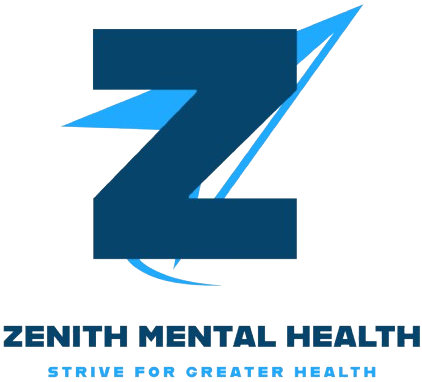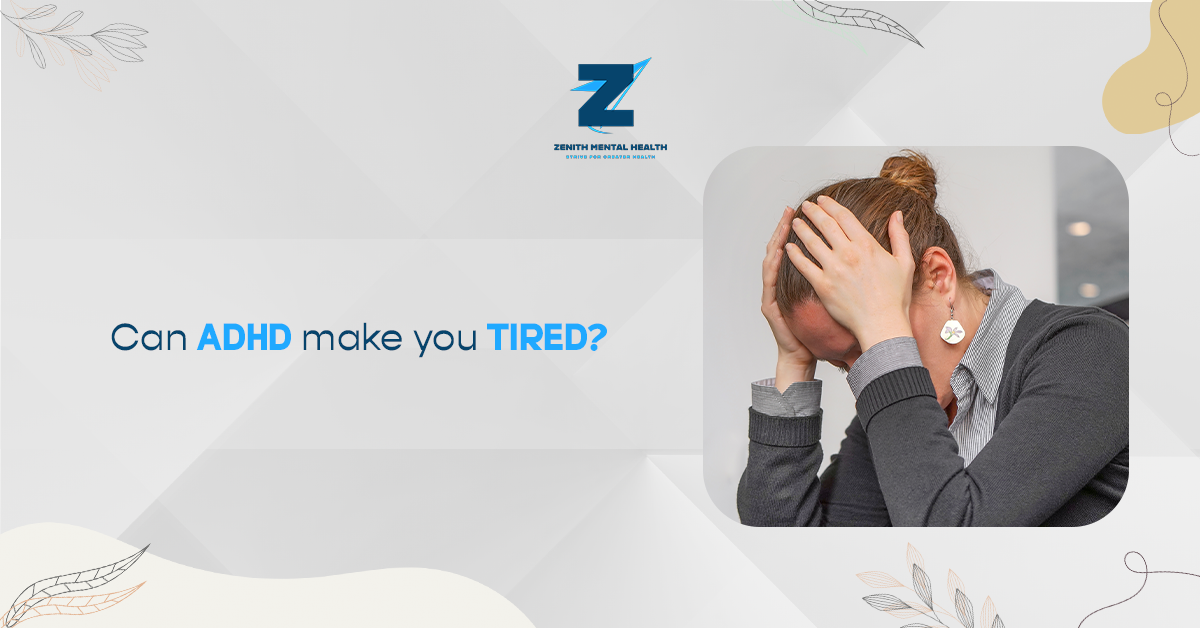Can ADHD Make You Tired?
Yes, ADHD can make you tired.
Despite ADHD often being linked with excess activity and distraction, tiredness is an underrated yet frequent symptom.
Continuous mental exertion to control symptoms, alongside interrupted sleep and difficulty controlling emotions, tends to leave ADHD individuals feeling worn out and energy-depleted.
If you’ve found yourself feeling worn out without a clear cause, recognizing your ADHD’s possible influence is crucial.
Let’s delve into why this occurs and possible solutions.
How ADHD Impacts Energy Levels
Mental Strain and Energy Depletion
Contending with ADHD symptoms—like inability to focus, impulsive behavior, and lack of organization—requires a lot of mental stamina.
This mental burden often leads to both mind and body feeling worn out over time.
ADHD and Chronic Fatigue
Numerous people experience both ADHD and chronic fatigue, which isn’t only about feeling weary but struggling with continuous exhaustion.
This occurs as ADHD brains expend more energy to finish everyday tasks, using up energy quicker than is usual.
ADHD and Feeling Tired from Poor Sleep
ADHD frequently impacts sleep habits. Issues such as constantly active thoughts, trouble relaxing, and unstable sleep schedules result in low-quality sleep.
Lack of good sleep explains why people with ADHD feel tired.
ADHD Low Energy and Emotional Fatigue
Emotional dysregulation, a typical symptom of ADHD, can also lead to feeling tired.
Oscillating between intense emotions and handling irritations or worry is tiring, increasing fatigue.
Why Does ADHD Make You Tired?
- Sleep Disturbances
ADHD often messes with sleep. It’s hard for many to fall or stay asleep, leaving them tired. Over time, this lack of sleep makes them feel more weary. - Cognitive Overload
Dealing with ADHD is challenging. Balancing tasks and deadlines drains a lot of mental power. The constant work can leave you tired, both in mind and body. - Emotional Dysregulation
Emotional control is tricky with ADHD. Intense emotions sap energy. Ups and downs in mood, annoyance, or worry make everyday life more tiring. - Medication Side Effects
Stimulant medications, often prescribed for ADHD, can cause problems. These often-used drugs can lead to energy dips when they wear off.
How to Get Energy with ADHD
Feeling tired can be challenging, but there are ways to beat it and increase energy.
Care for Your Sleep Hygiene
Good sleep habits are essential. Aim for a regular sleep pattern, lessen screen time before bed, and make your room a restful place.
Balance Nutrition
The food you put in your body alters your energy. Focus on a balanced diet with proteins, healthy fats, and complex carbs to fuel your body and mind.
Include Physical Activity
Regular exercise can balance dopamine levels and boost energy. A quick walk can help, too.
Mindfulness Techniques
Methods like meditation or deep breathing can lower stress and save energy for big tasks.
Medication and Supplements
Talk to your doctor about changes to ADHD meds or vitamins that could help fight tiredness.
Maintaining Energy for the Long Haul
Tackling the tiredness linked to ADHD needs lifestyle adjustments and insight into the leading causes.
Gain control over your day through methods that hike up energy, like enhancing sleep quality and eating better.
Remember, getting rid of low energy is not about working harder but smarter.
Final Thoughts: Can ADHD Make You Tired?
Can ADHD make you tired? Yes, it absolutely does.
Those living with ADHD often face deep tiredness, sleep issues, and drained energy.
Knowing how ADHD affects you mentally and physically is the key to easing those issues.
With helpful tactics and professional guidance, you can lessen weariness and charge up your life.
Reach Out to Zenith Mental Health for Professional Aid
If you’re struggling with fatigue and ADHD, you don’t have to go through it on your own.
Zenith Mental Health can provide the expert aid you need.
We help control ADHD symptoms, boosting your life quality. Reach out to us today.
FAQs
What does ADHD burnout feel like?
It’s like being utterly drained, not just physically, but emotionally and mentally too.
It’s the consequence of trying to do too much for too long, hyperfocusing, or dealing with ADHD symptoms.
As a result, focusing, finishing tasks or even finding the will to do things feels impossible.
Can a person with ADHD be happy?
Absolutely! Despite the difficulties of living with ADHD, many people find happiness in being creative, engrossed in what they love, forming solid human bonds, and utilizing practical methods that enable them to flourish.
What is the hardest thing about ADHD?
It differs from person to person. It could be focusing, handling emotions, or organizing things.
The continuous struggle with these symptoms can be tiring and affect everyday activities, relationships, and one’s self-confidence.
What does an ADHD shutdown look like?
An ADHD shutdown often comes when overstimulated or emotionally drained, resulting in disengagement from people or tasks.
Symptoms could include distancing from duties or interactions, seeming spaced out, or averting from worldly engagement.


No comment